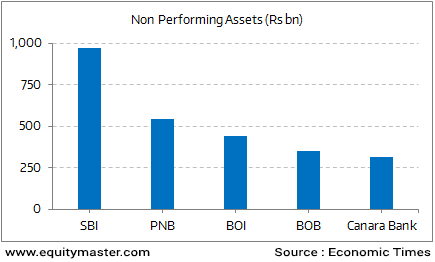Indian Indices Extend Losses; Healthcare Sector Down 3.4%
After opening the day marginally lower, the Indian share markets witnessed losses and went on to trade in the red. Sectoral indices are trading on a negative note with stocks from the healthcare sector and the realty sector witnessing maximum selling pressure.
The BSE Sensex is trading down 166 points (down 0.5%) and the NSE Nifty is trading down 50 points (down 0.5%). Meanwhile, the BSE Mid Cap index is trading down by 1.8%, while the BSE Small Cap index is trading down 2.2%. The rupee is trading at 64.75 to the US$.
Indian share markets are trading on a cautious note today following mixed global cues. Most of the volatility is seen on the back of a terror attack in the UK, F&O expiry, and quarterly result announcements.
On the sectoral front, banking stocks are witnessing selling pressure today. Losses are expected as the Reserve Bank of India (RBI) said that it will increase the number of members in the oversight committee which presides over the restructuring proposals.
The central bank, in its action plan to implement the Banking Regulation (Amendment) Ordinance, 2017, also said that it will expand the scope of the committee beyond the so-called scheme for sustainable structuring of stressed assets (S4A).
The RBI, however, delayed the decision on which cases will be taken to the bankruptcy courts, instead saying that it will constitute a panel comprising mostly of its independent board members to advise in the matter.
One shall note that the above measures are initiated to solve the rising menace of bad debts and willful defaulters. Gross NPAs have risen at an alarming rate over the past 1 year, as can be seen from the chart below:
Bad Loans Inventory Bloats Up

In other news, the government is considering allowing 100% foreign direct investment (FDI) in multi-brand retail, as long as the products are made in India. The final decision on the above development will be taken after wider consultation.
If implemented, the above policy would mean multinational supermarket chains will no longer able to sell imported items.
Local supermarkets, on the other hand, will have an advantage to provide more choice to consumers than supermarkets as they will be allowed to sell imported items as well.
How the above proposals pan out remains to be seen. We will keep you posted on the developments in this space.
Disclosure: None.



